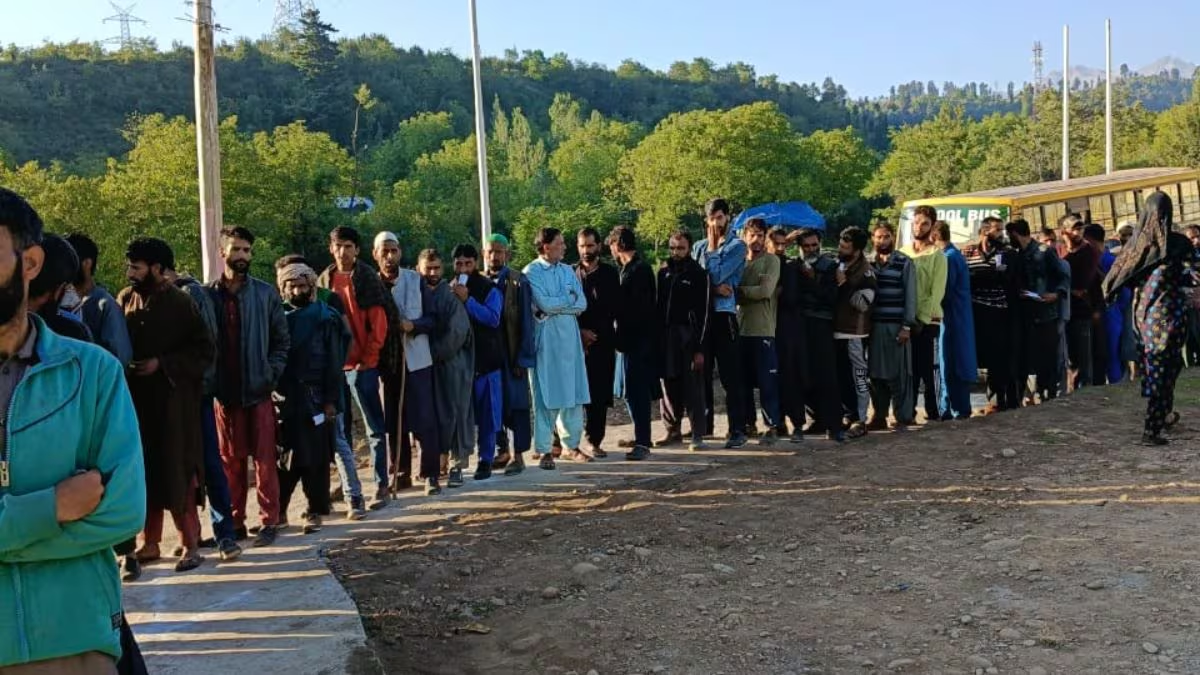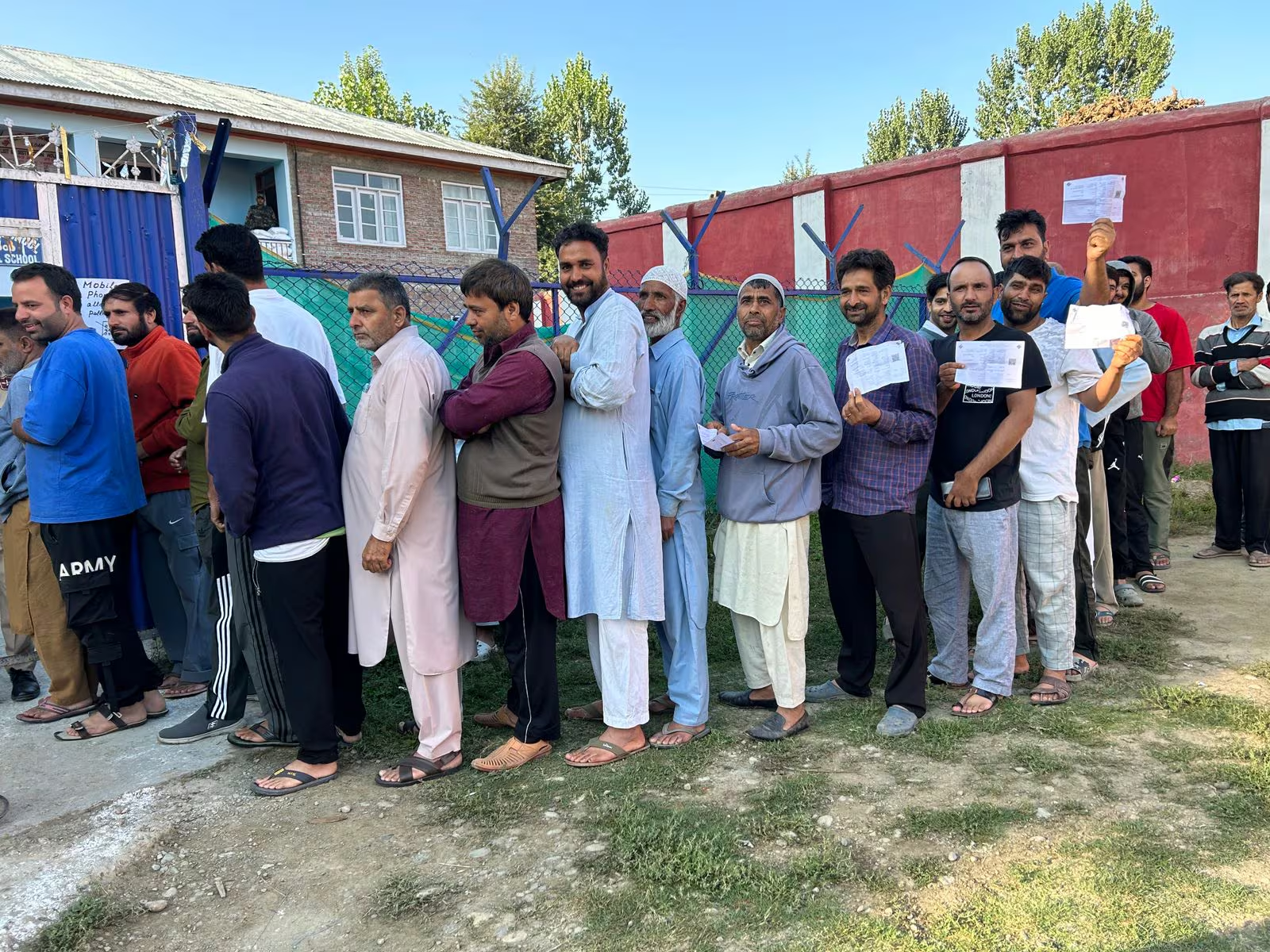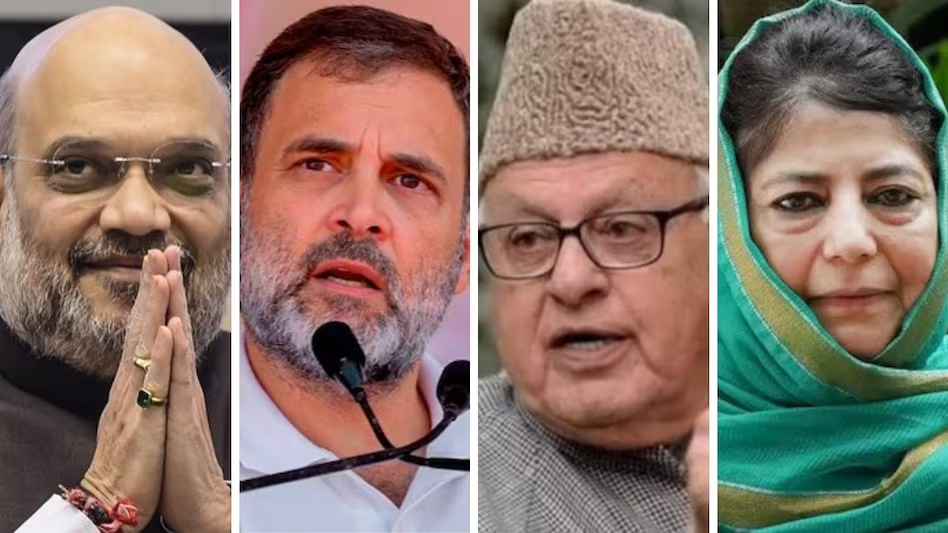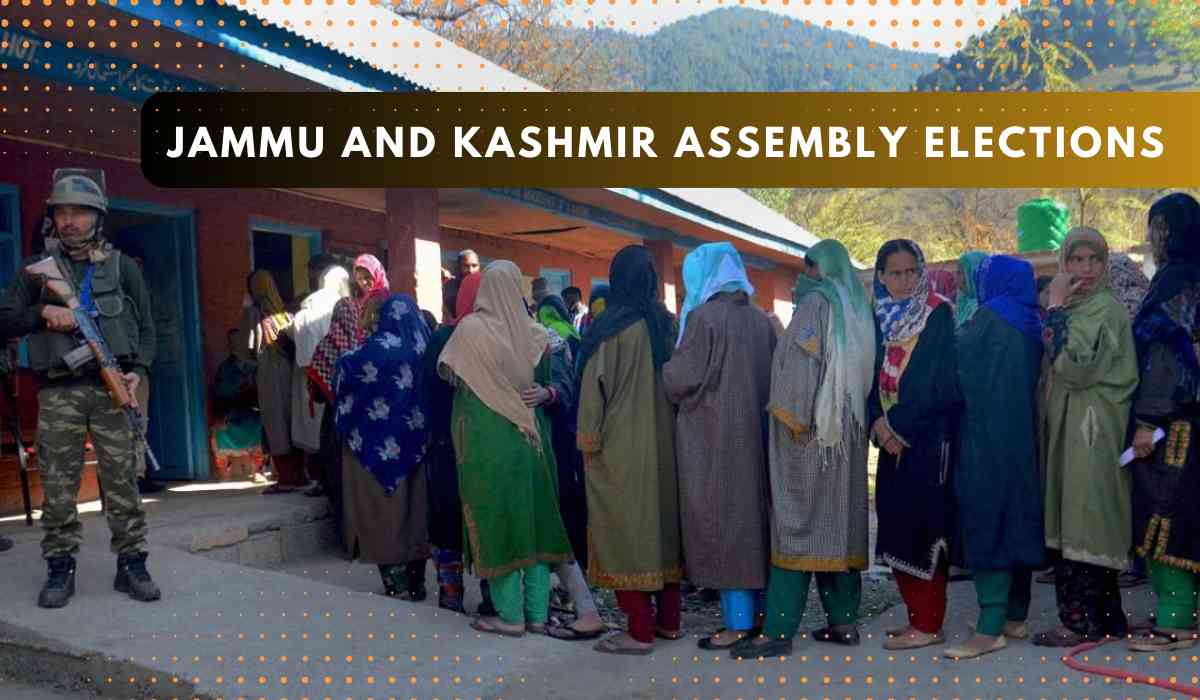Highly anticipated, Jammu and Kashmir assembly elections have officially begun. This shall be the very first time in the history of Union Territory since its abrogation of Article 370 back in 2019. Citizens of Jammu and Kashmir would be voting to choose their representatives across 24 constituencies as the three-part assembly election process begins. These are the last elections held in 2014 when Jammu and Kashmir was still a state.
TOP UPDATES
- Kishtwar district reported the highest voter turnout of 70.03% by 3 pm in the Jammu and Kashmir assembly elections, according to data from the Election Commission of India (ECI) on Wednesday.
- Doda district followed with 61.90% voter participation, Ramban recorded 60.04%, Kulgam reached 50.57%, Shopian 46.84%, and Anantnag had a turnout of 46.67%.
- Pulwama district saw the lowest turnout, with 36.90% of eligible voters participating in the first phase of the polls.
- Overall, the total voter turnout across all districts stands at 50.65%.
- According to the latest data from the Election Commission of India (ECI), Kishtwar had the highest voter turnout at 56.8% by 1 pm. Pulwama, on the other hand, saw a lower turnout of 29.6%.
- Anantnag recorded 37.9% voter turnout, Doda had 50.8%, Kulgam saw 39.9%, Ramban had 49.6%, and Shopian recorded 38.7% turnout, all as of 1 pm.

Voter Turnout
The Election Commission of India said that, within the first four hours of polling, a 26.72% voter turnout was recorded; Inderwal constituency topped the list with 40.36%, and Doda West followed close at 35%. Altogether, over 23.27 lakh voters will vote across six districts: Pulwama, Anantnag, Kulgam, and Shopian in South Kashmir, while the districts in Jammu include Doda, Kishtwar, and Ramban. Voting begin at 7 am and will end at 6 pm. Security forces are mounting strict vigil in sensitive areas. Altogether, 14,000 polling personnel have been deployed for smooth and secure voting at the 3,276 polling stations.

Important Constituencies and Candidates
Several constituencies in South Kashmir and Jammu have been identified as key ones. In Kashmir, places such as Tral, Pulwama, and Anantnag, once hubs of militancy, are going to witness crucial contests. Meanwhile, the Chenab Valley districts of Doda and Kishtwar are also witnessing tough competition. One of the main contenders belongs to CPI(M) - Mohammad Yousuf Tarigami, who seeks election for the fifth term consecutively from Kulgam. One of the notable candidates is Iltija Mufti, daughter of former Chief Minister Mehbooba Mufti, who seeks election from her family stronghold, Srigufwara-Bijbehara. The PDP candidate, Waheed-Ur-Rehman Para, who was defeated in earlier Lok Sabha elections, is also one of the prominent candidates this time from Pulwama. Notable candidates in this are Ghulam Ahmad Mir of the Congress, who is hopeful of a third term from Dooru, and Sakina Itoo of the National Conference, who is contesting from Damhal Hajipora. Security arrangements in the constituency are well-maintained but the blanket ban on Shia pandits from voting creates an issue. Given that Jammu and Kashmir have had a tumultuous history, especially since the abrogation of Article 370, the security was intensified all over the region throughout the election process. In addition, more checkpoints were put up in Srinagar and Jammu, where law enforcement officers inspect both pedestrians and vehicles thoroughly. CCTVs and drone cameras monitor polling stations and sensitive areas. The Election Commission is stressing that the elections will be free and fair despite the fragile political environment that marks this region with a minimal level of disruption.

Political Alliances and Historical Background
The Congress and the National Conference, contesting together are the two major parties in the fray. However the previous coalition government between the PDP and the BJP had collapsed in 2018 which led to central rule for an extended period. This election is being keenly watched as it will decide the political fate of the region, and analysts feel that in many constituencies, Congress-NC alliance will be ahead. The last general election in 2014 saw Mehbooba Mufti's PDP win 11 of the 24 seats, while BJP and Congress won four each and National Conference and CPI(M) one each.
Call of the Prime Minister
Prime Minister Narendra Modi appealed to the voters, especially first-time voters and the youth of Jammu and Kashmir, to exercise their franchise in large numbers and thus strengthen the democratic process there. Other political leaders, including Union Home Minister Amit Shah and Congress leader Mallikarjun Kharge, also appealed to voters to cast their votes responsibly after exercising their franchise.
Inputs by Agencies
Image Source: Multiple Agencies
Ⓒ Copyright 2024. All Rights Reserved Powered by Vygr Media.





















